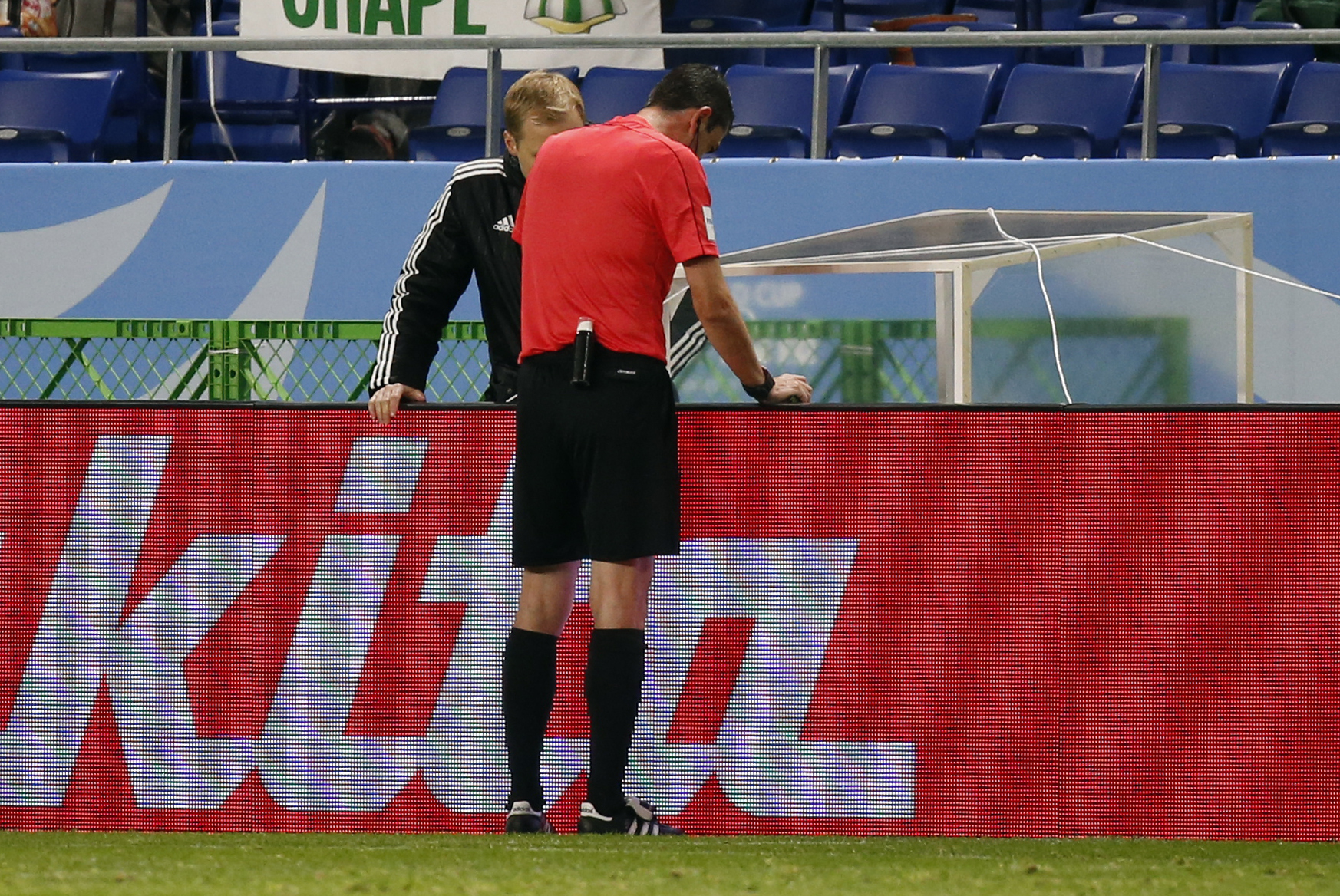Will video technology really cause football to lose its charm?
Last week we witnessed an historic moment. In football’s Club World Cup, held in Japan, FIFA trialled its video assistant referee technology in a top class, competitive game.
First, Kashima Antlers were given a penalty in their semi final game against Atletico Nacional, then it was used again to take a closer look at a goal scored for European champions Real Madrid by Ballon d’Or Cristiano Ronaldo. There was a suspicion of offside, the replay was checked, and then the goal was upheld after the referee was convinced no offside infringement took place.
But not everyone was happy with the implementation of the technology. The confusion that reigned after the incident was clear for all to see, and after the game, Madrid star Luka Modric expressed his distaste for the new initiative.
Football is always behind the times when it comes to technology. Other sports have used technology to get to the tough calls for years, but football has resisted until recently: first with the introduction of goal line technology and now with the use of video replays.
Goal line decisions seemed to herald a new dawn for football. No longer were we, the fans, forced to debate whether or not the ball had crossed the line. No longer were aggrieved fans forced to live with the disappointment of having a goal ruled out or in against their team. No longer were fans of the benefiting team forced to celebrate a victory with a hint of shame.
No longer were referees wrong.
And so video replays seem to be the next logical step, the latest victory in football’s modernising revolution.
But Modric’s criticisms seem out of place, then. Surely a man like Modric – footballers often live or die by refereeing decisions – should be delighted that the element of luck is taken out of his profession. At least when it comes to borderline refereeing decision.
Yet the Croatian international doesn’t see it that way. In fact, he thinks the opposite is true: he felt that it created even more confusion. Which is almost certainly true. How could it not: whereas before, the goal was given, a few half hearted appeals were observed from rival players, but everyone knew they wouldn’t lead anywhere. And then the goal was given. Now, as the referee checks the video, everyone has to guess – and try to have their voices heard amidst the confusion, too.
Given this was the first time, there were bound to be glitches of this nature. It’s new for everyone, and that leads to confusion. But in the end, it also led to the correct decision.
But there are some criticisms of this type of technology being used.
Offsides are a fairly black and white issue. It’s very rare that you get a subjective one. Numerous angles are shown, the video is frozen at the exact moment of the pass, and a myriad of fans, journalists and ex-pros add their opinion to the noise, either on social media or in a studio – all in the quest for an objective yes or no answer. And we usually feel like we get there.
But one of the beauties of the objectivity is that we usually accept human error at the end of it. If we conclude that the player is offside by a matter of yards, then the referee gets some blame, and the losing fans can feel aggrieved. But if it’s only a matter of centimetres, then we conclude that, whilst technically offside, it could have been given either way. That’s the beauty of football. Or so they say.
So how far will that argument go, the beauty of football one? Will football conclude that, even if there’s a foolproof way of getting to the right answer, it’s not worth getting rid of the often-infuriating element of human error, of luck and of chance?
There’s another beauty of football, too – that the game played at the highest level in the Premier League is still exactly the same game played at the lowest possible Sunday league standard.
So just how far down the leagues could video assistant referees go? Presumably the lowest possible Sunday league side can’t really afford to have a video ref. And besides, Fat Phil doesn’t look good on camera anyway!
Technology will probably be implemented into football. There probably isn’t really a way around it, given the tide of technological advancement and the fact that the sport is such big business that human error isn’t really an option when there’s a way to be absolutely certain.
Then again, the argument against seems to be that football might lose some of its rustic charm. Is that really a good enough argument when some players cost the GDP of a medium sized nation? Maybe football lost its charm years ago.
About author
You might also like
SPORTEL 2021: Day One Recap
This year’s prestigious SPORTEL convention kicked off in sunny Monaco today, welcoming a host of familiar faces as well as plenty of new ones. Doors opened at 8:30am with businesses
Six Founding Riders Set To Bring The Vision Of The UCI Track Champions League To Life
Olympic Champions, UCI World Champions and World Record holders join the new track cycling competition debuting in November 2021 The UCI Track Champions League is delighted to announce that six
Sports related spending to soar this summer as pre-pandemic life resumes
New insights from eBay Ads UK reveal the potential for brands to engage with an excited but nervous nation as sports events get back on track As pubs and indoor








